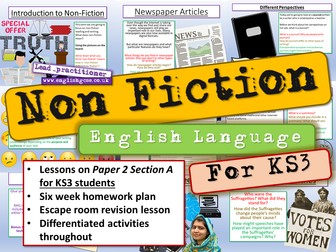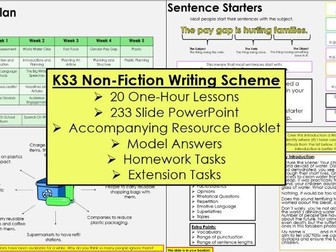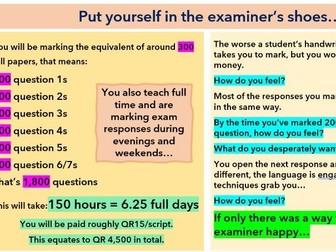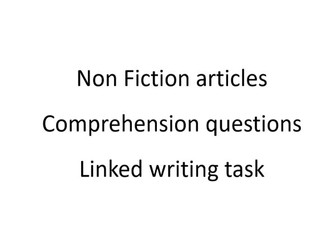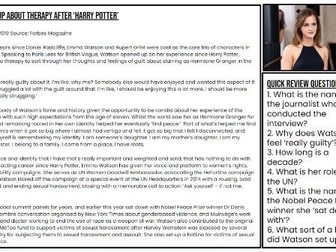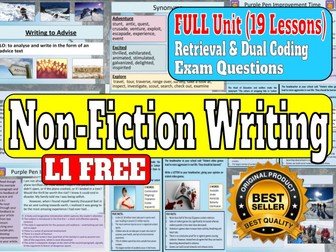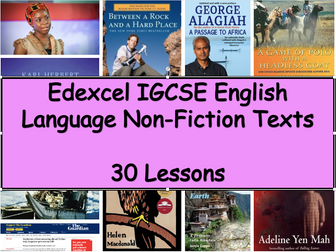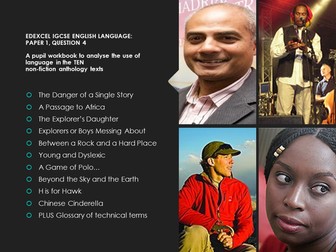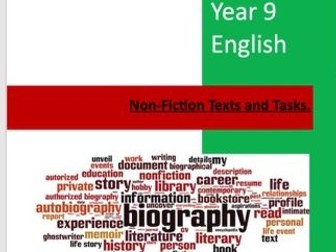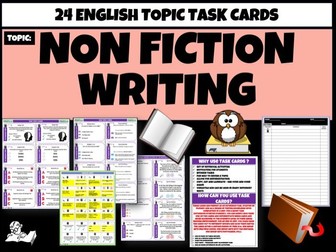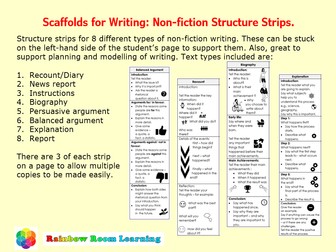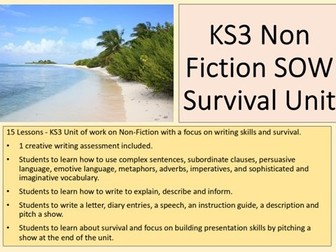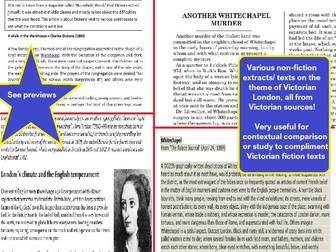Sale
Non-Fiction Writing
English non-fiction writing introduction lesson that explores purpose, audience, text types or forms, language and structure as students recap previous learning on non-fiction texts from previous years and use their new learning to evaluate purpose, audience and key features within an article on tattoos and perspectives around them.
Useful for KS3 students, particular Year 8 or Year 9, as well as GCSE English Language students preparing for Language Paper 2.
Includes differentiated activities, engaging worksheets, modelled examples, extensive teacher and student notes and more.
Check out our English Shop for loads more free and inexpensive KS3, KS4, KS5, Literacy and whole school resources.
**This lesson forms part of our KS3 Complete Pack. **
AQA English Language Paper 1 and Paper 2 Knowledge Organisers
AQA English Language Paper 1 Section A package
AQA English Language Paper 1 Sections A and B package
AQA English Language Paper 1 package
AQA English Language Paper 2 Question 5 package
AQA English Language Paper 1 Question 5 package
AQA English Language Paper 2 Section A package
AQA English Language and English Literature revision package
An Inspector Calls whole scheme package
An Inspector Calls revision package
Macbeth whole scheme package
Macbeth revision package
A Christmas Carol whole scheme package
A Christmas Carol revision package
Jekyll and Hyde whole scheme package
Jekyll and Hyde revision package
Romeo and Juliet whole scheme package
Power and Conflict poetry comparing poems package
Power and Conflict poetry whole scheme package
Love and Relationships poetry whole scheme package
Unseen Poetry whole scheme package
